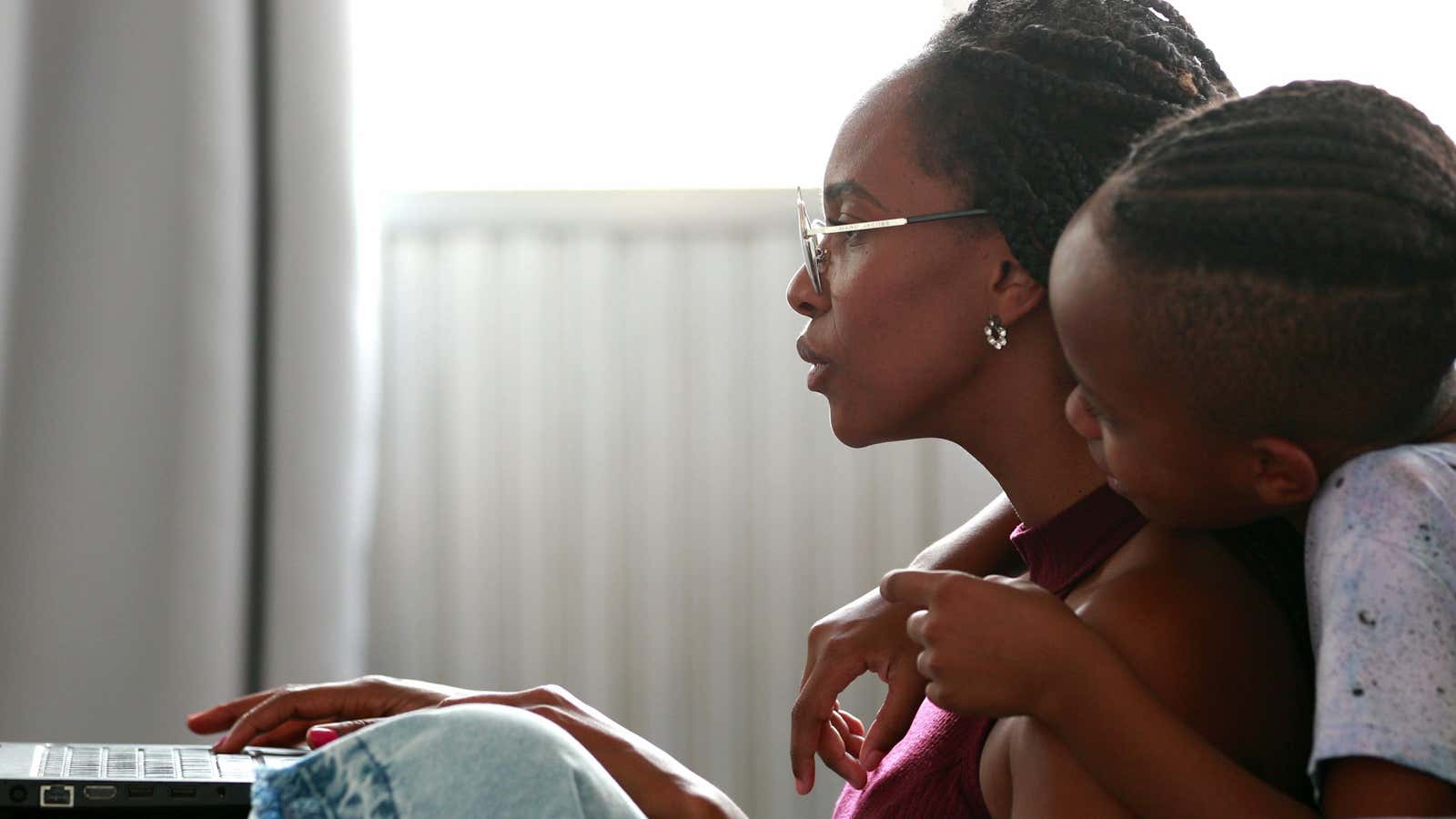How to Recognize the Signs of Parental Burnout (and What to Do About It)

If you’ve had children, especially small ones, during the last two years of the pandemic, you’re probably feeling, shall we say, tired. All parents have experienced tremendous stress trying to raise decent, well-adjusted people, while fear and isolation have skyrocketed, the structures and resources we rely on have become even more inaccessible, and our own emotional, physical, and sometimes financial well-being. suffered. .
While the pandemic has been stressful for all parents, the challenges have been particularly acute for those who work outside the home. Between unpredictable kindergarten closures, virtual learning (with kids unable to sit still or read, much less type), COVID tests, and lockdowns at the start of every cough, our ability to keep and do paid work has been severely tested. . Patience has been stretched to the limit as we try to hold meetings and meet deadlines while siblings fight and babies whine at our feet. (Then fight the guilt of ignoring or snapping at them so the job can get done.)
Now there is a term for the next level of fatigue that many experience. A new report from The Ohio State University found that 66% of working parents meet the criteria for “parental burnout.” (The report is based on an online survey of 1,285 working parents conducted between January 2021 and April 2021.) The report summarizes: “Many parents, especially working parents whose children have been sheltered at home with them for over a year, feel the experience of either taxed them or broke them.”
What is parental burnout?
How is parental burnout different from normal exhaustion? The study acknowledges that parental stress is normal, but defines parental burnout as “when chronic stress and exhaustion occur that overwhelm a parent’s ability to cope and function. Burnout is often the result of a mismatch between perceived stressors and available resources, and results in parents feeling physically, mentally and emotionally exhausted, and often alienated from their children.”
The study found that women are more likely than men to suffer from parental burnout. Sixty-eight percent (68%) of women reported burnout compared to 42% of men.
While you won’t find parental burnout as a clinical diagnosis included in the DSM-5, a diagnostic tool published by the American Psychiatric Association, psychologists are increasingly recognizing it as a subtype of job burnout , a recognized syndrome worldwide. Health Organization .
Signs of parental burnout.
Dr. Jennifer Yen, a psychiatrist at UTHealth Houston, told the New York Times , “Like burnout, parental burnout is defined as the physical, emotional, and mental exhaustion from the constant need to care for children.” While many parents would simply describe it as “bedtime” or “Saturday,” Ian advises parents to be on the lookout for “signs like fatigue, irritability, changes in sleep, appetite and mood, or pain. What makes parental burnout different is how severe these symptoms are, as well as how much they affect daily life.”
Dr. Yen also noted other red flags associated with parental burnout, such as feelings of anger or resentment at having to take care of their children and the onset of physical or emotional isolation from them. She added that parents with burnout may also feel trapped or fantasize about leaving.
How to tell if you have parental burnout (and why it matters)
In addition to general feelings of fatigue, anger, malaise, or resentment, the OSU report, written by Keith Gawlick, Associate Professor of Clinical Nursing and Dr. Bernadette Mazurek Melnick, the university’s chief health officer, includes the Working Parent Burnout Scale , by which parents can measure where they are. stand. The scale asks working parents to rate statements such as “I lose my temper easily with my children” and “I feel overwhelmed trying to balance my work and parenting” on a scale from “not at all” to “very much.”
The authors of the study found that “burnout was strongly associated with parental depression, anxiety, and increased alcohol consumption, as well as the likelihood that parents would engage in punitive parenting practices. Parental burnout is associated with internalization, externalization, and children’s attention.” (For example, feeling sad or unhappy (internalization), fighting/teasing other children (externalization), and being unable to sit still/trouble concentrating (attention).)
If you see an increase in this behavior in your child, parental burnout may be at least partly to blame.
How to deal with parental burnout
The authors of the study suggest the following evidence-based strategies:
Taking care of yourself : Even a five to ten minute recovery break a couple of times a day to feel better or do something that brings you joy works wonders (e.g. slowly drink a warm drink, do a five minute meditation). ; engage in physical activity, such as dancing to your favorite music or walking up and down stairs.
Be kind to yourself : don’t have too high expectations. Don’t overdo it and don’t feel guilty about saying no to something. Forgive yourself; everyone has strengths and room for improvement.
Talk to someone you trust about how you’re feeling : Stay in touch with family and friends.
Build your mental resilience and coping skills : This can include mindfulness practice, cognitive behavioral skills development, gratitude and self-affirmation practice, and deep abdominal breathing.
Ask for help : If your level of burnout, anxiety, and/or depressive symptoms is preventing you from functioning or concentrating, talk to your healthcare provider or seek psychological help. It is the strength to recognize when we need help, not a weakness.
Warning
While the Burnout Scale, according to the study authors, is “an opportunity [for parents] to reflect on their mental and emotional well-being…potentially providing motivation to do something constructive about it,” it is not a substitute. to treat diagnosable mental illnesses such as anxiety or depression. If you have other mental health concerns, please seek advice from your doctor or licensed therapist.